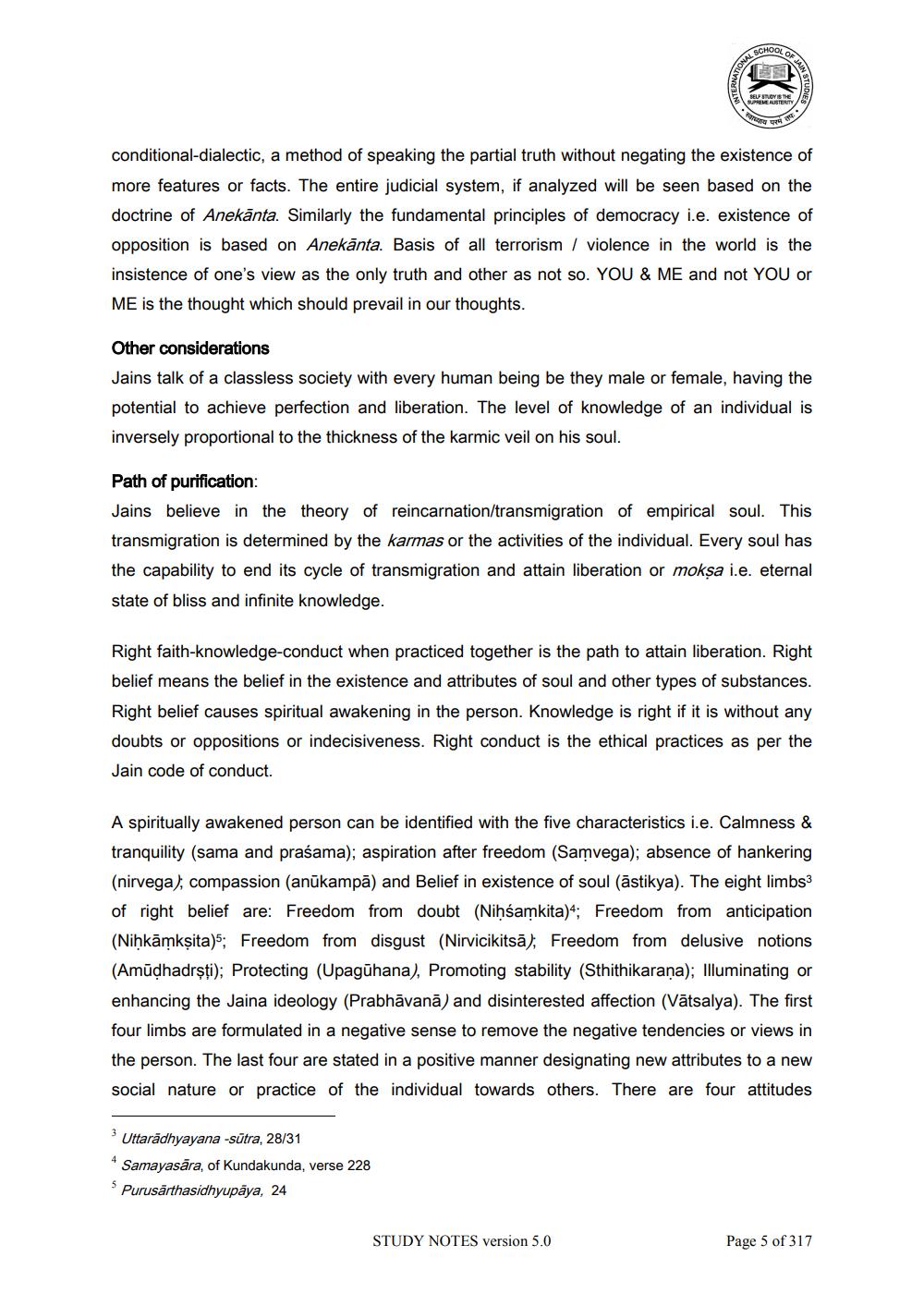________________
INTERNATION
SCHOOL
OF
SELF STUDY IS THE SUPREME AUSTERITY
स्वाध्याय
परमे
conditional-dialectic, a method of speaking the partial truth without negating the existence of more features or facts. The entire judicial system, if analyzed will be seen based on the doctrine of Anekānta. Similarly the fundamental principles of democracy i.e. existence of opposition is based on Anekanta. Basis of all terrorism / violence in the world is the insistence of one's view as the only truth and other as not so. YOU & ME and not YOU or ME is the thought which should prevail in our thoughts.
3 Uttaradhyayana -sūtra, 28/31
4 Samayasara, of Kundakunda, verse 228
5 Purusärthasidhyupāya, 24
IN STUDIES
Other considerations
Jains talk of a classless society with every human being be they male or female, having the potential to achieve perfection and liberation. The level of knowledge of an individual is inversely proportional to the thickness of the karmic veil on his soul.
STUDY NOTES version 5.0
Path of purification:
Jains believe in the theory of reincarnation/transmigration of empirical soul. This transmigration is determined by the karmas or the activities of the individual. Every soul has the capability to end its cycle of transmigration and attain liberation or mokṣa i.e. eternal state of bliss and infinite knowledge.
Right faith-knowledge-conduct when practiced together is the path to attain liberation. Right belief means the belief in the existence and attributes of soul and other types of substances. Right belief causes spiritual awakening in the person. Knowledge is right if it is without any doubts or oppositions or indecisiveness. Right conduct is the ethical practices as per the Jain code of conduct.
A spiritually awakened person can be identified with the five characteristics i.e. Calmness & tranquility (sama and prasama); aspiration after freedom (Samvega); absence of hankering (nirvega), compassion (anūkampā) and Belief in existence of soul (āstikya). The eight limbs3 of right belief are: Freedom from doubt (Niḥśamkita)4; Freedom from anticipation (Niḥkāmkṣita); Freedom from disgust (Nirvicikitsā); Freedom from delusive notions (Amūḍhadrşti); Protecting (Upaguhana), Promoting stability (Sthithikarana); Illuminating or enhancing the Jaina ideology (Prabhāvanā) and disinterested affection (Vatsalya). The first four limbs are formulated in a negative sense to remove the negative tendencies or views in the person. The last four are stated in a positive manner designating new attributes to a new social nature or practice of the individual towards others. There are four attitudes
Page 5 of 317




